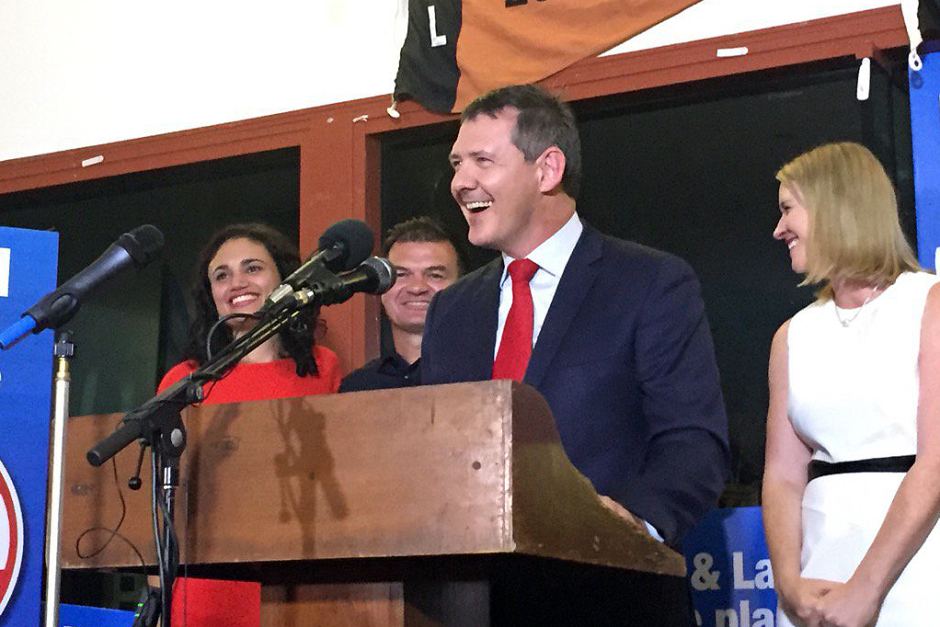AEU NT STATEMENT IN RESPONSE TO THE NT ELECTION
The AEU NT congratulates Michael Gunner and the Labor Party on a decisive election victory.
Voters in this election decisively rejected Adam Giles and the Country Liberal Party and their arrogant and inept approach to government. Lack of consultation and concern for the impact of their policies on those affected were major ingredients in the CLP’s downfall. They failed to listen to key stakeholders and critics and this disregard for the electorate ultimately brought about their downfall.
It was a terrible time for teachers and educators under the Giles Government. We saw our resourcing and staffing in schools slashed and our voice taken away, with cynical politicians and bureaucrats sidelining the union and imposing destructive and divisive policies like the Indigenous Education Review and Global School Budgets. Worst of all, the Giles Government misappropriated hundreds of millions of dollars of federal funding delivered under the Gonski agreement and earmarked for schools based on relative levels of disadvantage. None of those funds were spent in schools in the way they were intended, instead being used to offset cuts and fund a school building program that was primarily about economic stimulus rather than educational need.
The result of the Giles Government’s funding priorities was that public schools saw their budgets slashed, while funding soared for private schools. Despite the repeated claim by the now former Education Minister Peter Chandler that his government was responsible for record spending on education, the Budget Papers show that less money was allocated for public education this year than in 2012. After four years of the CLP Government, our schools are dramatically underfunded and have missed out on huge quantities of additional Gonski resources.

We welcome the policy commitment from Labor to restore recurrent funding to employ an additional 160 teachers from the beginning of the coming school year and we will work with the new government to help determine how the funds for these teachers should be allocated. We disagree with Labor’s stated intention to retain the Global Funding model for schools, and will continue to argue that at a minimum staffing costs are recentralised. There are too many stories of CT9 (experienced) teachers being told they are a liability due to budgetary pressures, and the current model imposes too much of an administrative burden on principals.
Territory Labor has not yet given a public commitment to implement Gonski needs-based funding in NT public schools, and we will certainly expect the new minister to take the fight to Malcolm Turnbull and Simon Birmingham, who plan to scrap the needs-based funding model, which would mean the loss of tens of millions of dollars for NT schools.
We are heartened to know that there are a significant number of teachers and educators in the new government. Congratulations are due in particular to AEU member Selena Uibo who was elected in the seat of Arnhem. The AEU looks forward to working with the new government to address the inequities in both resourcing and outcomes in NT education.
Thanks are due to all our members who have kept the faith in dark times, knowing that we were dealing with bullies in both the government and the department who simply ignored legitimate criticisms and failed to consult in any meaningful sense. We believe that the efforts of AEU members played a role in bringing about the end of the Giles Government. Our industrial and political campaign in 2013 and 2014 was one of the largest in NT history, with a number of strikes and large rallies outside Parliament and in regional centres.
Since 2014 our focus has been on highlighting the inequities in education funding and especially in Chandler’s so-called needs based model introduced to dress up the global school budgets. This model is anything but needs-based – as our analysis shows, the biggest cuts have tended to fall on the most disadvantaged schools.
After four years of being locked out of a role in policy-making, the AEU will seize the opportunity to have a meaningful place in the development of a fair funding model and progressive policies. With our next round of enterprise bargaining due to begin early in 2017, we will be seeking members’ input on the key concerns to address. We know that workload is chief among them.
It has been a tough few years for our union and its members. Many have felt nervous about speaking up for fear they would be targeted. Now is the time to encourage colleagues who have not joined the AEU or allowed their membership to lapse to get on board. If we remain united we can make a real difference for the better, for both ourselves as educators and for our students.
Photo credit: James Oaten ABC

